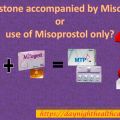The Impact Of Parental Consent Laws On Teenage Access To Abortion

Parental consent laws, which require minors to obtain permission from a parent or guardian before accessing abortion services, have a significant impact on teenage access to abortion. These laws are intended to ensure that parents are involved in critical decisions regarding their child’s health. However, they often place undue pressure on teenagers facing unplanned pregnancies, making it harder to access the services they may need promptly. With transitions from the legal to the personal, these restrictions reveal the complex intersection between family dynamics, state laws, and teenagers' autonomy.

Legal Landscape of Parental Consent Laws
The requirements for parental consent vary widely across U.S. states. While some states mandate parental notification, others require full parental consent, creating diverse experiences for teenagers seeking reproductive healthcare. For many young people, this requirement means they must either convince a parent or pursue a judicial bypass. This bypass process involves a judge evaluating the case to grant permission if they believe the minor is mature enough or that it is in their best interest. Although this system aims to be fair, it often adds stress, prolongs the waiting period, and sometimes discourages teens from pursuing abortion altogether.
Psychological and Emotional Challenges for Teenagers
Parental consent laws add emotional strain on teenagers who may already feel isolated or anxious about their situation. In cases where family relationships are strained, asking for parental consent can create tension or even lead to dangerous confrontations. Moreover, teens who fear judgment or backlash may resort to unsafe measures or attempt to manage their pregnancy alone. The requirement to involve a parent, therefore, can cause emotional distress and push some young people away from professional care, even if that care is essential for their health and safety.
Health and Safety Implications
The delay in receiving abortion services due to parental consent laws can increase health risks for teenagers. Abortions are generally safer and less complex when performed earlier in the pregnancy. However, when teens need additional time to navigate legal obstacles or family discussions, they may lose access to medication abortion. This limitation can lead them to search for alternative options to buy abortion pills online discreetly. While buying abortion pill online can be a safe option when done through reliable sources, many teens might encounter misinformation or unreliable vendors online, putting them at potential risk.
Socioeconomic Impact on Access
Parental consent laws disproportionately impact teenagers from low-income backgrounds, who may lack resources or transportation to navigate lengthy judicial processes or to access supportive services far from home. For instance, teens who cannot afford a legal consultation or the time off school or work required for court hearings may face additional hurdles. This lack of resources may make them more inclined to explore methods to purchase abortion pills online as a more accessible option, especially in states with severe restrictions on teenage abortion access.
Ethical Debate and Individual Rights
Balancing parental rights with the autonomy of teenagers is a deeply complex ethical issue. Supporters of parental consent laws argue that they uphold family involvement and parental rights. However, opponents highlight that these laws infringe on young individuals' rights to privacy and bodily autonomy. Studies indicate that a significant number of teenagers feel capable of making informed decisions about their reproductive health and that requiring parental consent can infringe upon their personal agency. This ethical debate continues to fuel discussions on teenage rights, reproductive freedom, and family dynamics.
Alternative Solutions and Policy Considerations
To reduce the barriers created by parental consent laws, some advocates propose increasing access to comprehensive sex education and counseling services for teenagers. With better resources and guidance, teens might feel more prepared to discuss their options with a trusted adult or healthcare provider. Additionally, policymakers can consider revising consent laws to include broader exceptions, such as allowing access without parental consent in specific circumstances. Many states have implemented judicial bypass provisions, but some advocates argue that streamlined access would better serve teenagers' health needs.
Conclusion
Parental consent laws are a critical yet controversial aspect of teenage access to abortion, shaping the paths young people must take when faced with unplanned pregnancies. While intended to support family communication, these laws often have unintended effects that limit autonomy and access to timely care. As the conversation around reproductive rights continues, addressing these laws with consideration for teenagers' mental and physical well-being, family dynamics, and personal agency is essential for creating a supportive healthcare environment.

Other articles and publications:
Articles and publications of other companies:
- +1 (800) 704-2951
- 3742 Marshall Street, ADAMS, TN, 37010
- daynighthealthcare247.com/product/abortion-kit






